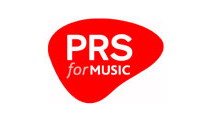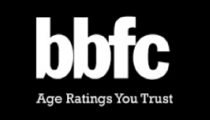This website uses cookies so that we can provide you with the best user experience possible. Cookie information is stored in your browser and performs functions such as recognising you when you return to our website and helping our team to understand which sections of the website you find most interesting and useful.
Friday 21 August 2015, 11:10 | By Chris Cooke
CMU Beef Of The Week #270: Tinder v Music
And Finally Beef Of The Week Business News Live Business

So, as you almost certainly noticed, there was a lot of chitter chatter, and also some binter banter, which I’ve just decided is now a thing, earlier this month about the declining number of nightclubs in the UK, mainly after a BBC report on the trend. Was it because of draconian new licensing rules, or that young people had less money to spend in these times of austerity, or just because the kids don’t like clubbing? I like to thing they’re all at home crocheting. While high on smack.
Meanwhile, on the other side of the world, a promoter in Melbourne also pondered on Facebook this week as to why 2015 is proving to be a challenging year for grass roots clubs and music venues, throwing another theory into the mix as to why that might be the case.
Writing on his venue’s Facebook page, James Young documented a conversation he had had with another local promoter who had “posed a theory I had never heard before: ‘Tinder has destroyed the live music and pub scene. Look at Grindr and the gay scene. Grindr came two years before Tinder. Commercial Road Prahran used to be a thriving late night gay hot spot. Now, it’s as dead as a doornail. It’s over. Now we are seeing the same thing with Tinder'”.
Elaborating on this other guy’s theory, the Facebook post goes on: “This is how young people ‘pick up’ these days. I see them in the office. They’re on it all the time. They’re not going out to clubs and pubs to pick up anymore. They’re just picking up their phones. Tinder is killing off clubs and pubs all over Melbourne and Australia”.
So, to conclude, when smug live music people used to brag to a struggling record industry that “ha, you can’t replicate the clubbing or gig experience online, so we’re safe”, they were ignoring that fact that, for at least some punters, the clubbing and gig experience was mainly about finding someone to fuck, and that, ladies and gentleman, can definitely be replicated online. And through Grindr and Tinder it has been.
And even if we accept that Tinder is about dating rather than just fucking, it still has a negative impact on music venues – this theory goes on – because people who meet through a dating app can work out what, if anything, they have with common with their possible date beforehand. Which means they are more confident meeting said date for dinner, rather than deliberately picking a club venue where, if it turns out the date is the most boring dullard in the world, you don’t have to talk to them anyway because, well, you know, loud music.
Young’s mate’s theorising goes on that, when the kids hook up through Tinder and go on a first date “they try to impress them with some chic dining experience, rather than a rowdy live music experience. I’m telling you, Tinder has a lot to answer for. It’s bleak out their for club owners. These are dark and challenging times. We need to get young people off their phones and back into our bars to actually socialise or we’re all going to go out of business”.
In a later Facebook post, Young also notes that perhaps Netflix is part of the problem here. People hook up on Tinder, and then have a cheap night in bingeing on ‘Breaking Bad’ or suchlike, where the drink is much cheaper, and the potential to fuck much closer to hand. Good times. They’re clever little bastards these young’uns.
But surely the entire customer base for live music and the clubbing economy wasn’t just using these venues as a platform for hooking up?
No, Young concedes in the Sydney Morning Herald. But, “bars are fragile businesses and anything that affects even three or five percent of business on already thin margins can be hard to recover from. And what we are talking about is 10 per cent loss of business and, for some businesses, that’s their profit margin”.
So there you go. Of course, all of this is just anecdotal, and ultimately the theory of one unnamed Melbourne booker. What does he know? But it’s definitely got people chatting. If rock n roll is to survive, and those aforementioned draconian licensing laws are cracking down on the drugs, then perhaps the music industry has to reclaim the sex. Sex, drugs and rock n roll, see. That’s what I was attempting there. And if you don’t like it, well, just swipe left.
READ MORE ABOUT: Grindr | Tinder
Friday 21 August 2015, 09:01 | By Andy Malt
CMU Podcast: Baboom, MegaUpload, SFX, The Voice
Business News Digital Legal Live Business Media Setlist

CMU’s Andy Malt and Chris Cooke review the week in music and the music business, including the long-awaited launch of Baboom, the longer awaited deletion of MegaUpload, the further protracted buy-back of SFX, and unexpected departure of Tom Jones from ‘The Voice’. The CMU Podcast is sponsored by 7digital.
Subscribe to the CMU Podcast
Listen to the CMU Podcast and sign up to receive new episodes automatically each week through any of these services…
iTunes | audioBoom | SoundCloud | Stitcher | Spreaker | TuneIn | Mixcloud | RSS
Stories discussed this week
Baboom
• Baboom finally goes live, plays with the streaming music model
MegUpload
• Server firm seeks to finally delete the old MegaUpload files
• Kim Dotcom posts pre-MegaUpload shutdown chat with Universal where collaboration is on the agenda
• Hosting company wants to wipe 1103 MegaUpload servers (TorrentFreak)
• Universal Music Group and Kim Dotcom (SoundCloud)
SFX
• Sillerman fails to finance SFX buy-back bid, opening a new seven week window for alternative proposals
• Sillerman confirms he is working on SFX buy-back Plan B
The Voice
• New coaches for The Voice
• Boy George comments on him thieving Tom Jones’ Voice seat (sort of)
• Tom Jones statement (Facebook)
What we didn’t have time to talk about
• Movie industry drops web-block injunction request from MovieTube case
• SoundCloud no longer providing data to Next Big Sound
• Apple Music disputes ‘half of users no longer streaming’ stat
• Apple announces all new look Roundhouse season
• Deezer seeking new finance, IPO not ruled out
• BBFC to pilot voluntary ratings for online music videos, as exemption threshold for music DVDs narrowed
• Extra security needed next to provocative Nicki Minaj waxwork after saucy photos go viral
Please subscribe, rate, review and share the show once you’ve listened!
READ MORE ABOUT: Baboom | Boy George | Kim Dotcom | MegaUpload | Paloma Faith | Robert Sillerman | SFX Entertainment | The Voice | Tom Jones
Thursday 20 August 2015, 12:33 | By CMU Editorial
From The Fringe: Off The Mic
From The Fringe

Each day this month we are looking at some of the shows, performers and events being championed at the Edinburgh Festival this year by our sister magazine ThreeWeeks.
And today some comedy at last, because yesterday at the Fringe former Xfm DJ Marsha Shandur – who you might remember for her brilliant ‘Marsha Meets’ comedy podcast back in the day – launched a new book she has co-written with comedian Deborah Frances-White on the art of stand-up. The book was formally unveiled with a panel debate on comedy making at The Pleasance.
“My favourite interviewees were the ones who got very technical” said Shandur to ThreeWeeks. “Gary Delaney was fascinating throughout – talking about the specific effect on one-liner comics of social media, which is both good and bad, and the several stages he goes through to put a set together. He even walked us through his complex and fascinating method of remembering an hour’s worth of one-line jokes”.
“I also loved how Neal Brennan – who co-created Dave Chappelle’s ‘Chappelle’s Show’ – gets really into the psychology of it. When he realised he wasn’t smiling enough on stage, he would give his girlfriend $200 before a show; then, every time he smiled on stage, he’d get $20 back from her. At first he kept losing $120 a show, then he learned to get it all back”.
Find out more about the book here.
READ MORE ABOUT: Edinburgh Fringe | Off The Mic | ThreeWeeks
Thursday 20 August 2015, 12:26 | By Chris Cooke
New Spotify terms seek to crack down on playlist payola
Business News Digital Top Stories

The word ‘payola’ has been back on the lips of record industry execs with increased frequency of late, amidst chatter that some in the business are now paying the owners of influential playlists on the big streaming platforms to include their new records in their lists.
Online playlists, of course, have become an important way of getting new music onto the radar of consumers using streaming platforms, ensuring initial and repeating listening of tracks, which then provides a boost in royalties for the rights owner and artist. Although the digital services and labels themselves control some of the most influential playlists, others are run by media, journalists, DJs and, importantly, random punters.
As previously noted, an increased effort is now being made to PR these playlist owners to get new tracks listed, and earlier this month Universal Music announced an alliance with one of the leading players in this space, Jay Frank’s DigMark. But is this new playlist marketing effort just about PRing playlist owners in the traditional way, or is money changing hands? At CMU @ The Great Escape earlier this year DigMark’s Aileen Crowley said that her company had made occasional payments to playlist owners, and some in the room said this seemed like a good use of marketing budgets.
But, of course, payments to influence playlisting are always controversial in music circles, bringing back memories of rampant radio ‘payola’ back in the day. It clearly gives an advantage to those labels and artists with bigger budgets, and potentially damages the credibility of the playlists that are secretly accepting payment, if said payments become public knowledge.
Though some might argue that if that’s a risk a playlist owner is willing to take, so what? After all, label-owned playlists are already popular and clearly skew (mainly or exclusively) towards tracks that that record company has released, so if another playlist wants to favour a label in return for payment, is that really any different?
Critics might argue that there is a kind of dishonesty when playlists secretly accept payment to showcase tracks, whereas a label-owned playlist is open about its biases (though not all label-owned playlists are immediately obvious as such to the average punter).
Either way, one American label source has told Billboard that playlist payola is now ‘a thing’, indicating fees are being paid considerably higher than those alluded to by Crowley at CMU@TGE. “The price can range from $2000 for a playlist with tens of thousands of fans to $10,000 for the more well-followed playlists” says the source.
Unlike with radio, where payola routinely breaks broadcasting rules, online such activity isn’t usually illegal, though according to Billboard’s sources, the digital service providers are starting to become opinionated on the practice. And indeed Spotify’s Jonathan Prince told the trade mag that its new terms of service will prohibit “accepting any ?compensation, financial or otherwise, to influence … the content included on an account or playlist”.
Though quite how such terms can be enforced – especially if rights owners fudge things by saying they pay playlist owners to listen to their new music, rather than to explicitly list it – isn’t clear.
And, of course, the issue remains that for media, pundits and individuals making playlists on platforms like Spotify – who are arguably now providing much value to the DSPs, labels and users – there isn’t actually any way to make money out of that pursuit without accepting payola bungs. Which brings us to the suggestion that has been made in some quarters of late that playlist creators delivering real value should perhaps receive a royalty from the DSPs.
Though even if that does happen, this all-new payola debate seems likely to rumble on for the foreseeable.
READ MORE ABOUT: DigMark | Jay Frank | Spotify | Universal Music
Thursday 20 August 2015, 12:20 | By Chris Cooke
Dr Dre and Ice Cube request removal from lawsuit relating to Suge Knight homicide case
Artist News Legal

Dr Dre and Ice Cube have demanded they be removed from a civil lawsuit that has stemmed from that incident earlier this year when one time Deathrow Records boss Suge Knight drove a vehicle into two men, killing one of them.
As previously reported, Knight is facing criminal charges in relation to the incident that took place back in January. It’s claimed he deliberately drove his pickup truck into Cle Sloan and Terry Carter, killing the latter, after an altercation outside a burger bar in LA.
In the civil action filed in June by Carter’s widow, it is stated that the altercation – as we already suspected – began on a nearby film set where a commercial for the new NWA biopic ‘Straight Outta Compton’ was being filmed.
Carter’s legal papers say that Sloan had been hired to recruit local gang members to participate in the film shoot, as extras and security. Both Dre and Cube were present at the filming, which caused problems when Knight – who has long feuded with Dre, of course – also showed up, seemingly to berate those working on the movie over his portrayal in the biopic.
Dre then seemingly requested that Sloan remove Knight from the site, which resulted in a fracas that then continued a few miles away outside that burger bar. It is thought Carter had accompanied Sloan to play peacemaker.
The lawsuit claims that the film’s makers, and Dre and Cube individually, should take some responsibility for the resulting incident, and therefore Carter’s death, because had they not insisted Sloan remove Knight from the shoot the resulting altercation would not have taken place.
But in a legal filing last week, Dre and Cube’s reps said that their clients could not have been expected to foresee that their request that Knight be removed from the set would “create undue risks for anyone, let alone Carter”. Indeed, the purpose of the request was to prevent more foreseeable conflict at the film shoot itself.
According to Billboard, Dre and Cube’s motion says of Carter’s litigation: “The risk that Suge might leave the [film shoot] and proceed to his fatal confrontation with Carter was no more foreseeable than the possibility that Suge would injure or kill someone else if he had been permitted to stay”.
It remains to be seen if the courts now remove the two former NWA men as defendants from this case.
READ MORE ABOUT: Deathrow Records | Dr Dre | Ice Cube | Suge Knight
Thursday 20 August 2015, 12:16 | By Chris Cooke
SESAC to represent Green Day’s performing rights
Business News Deals Labels & Publishers

The smaller of America’s performing rights organisations, SESAC, yesterday announced it was now representing Green Day, whose performing rights previously sat with its bigger rival ASCAP.
Confirming the new recruits, SESAC CEO John Josephson told reporters: “Green Day are an iconic band that has created important, diverse and unforgettable records. Billie Joe, Mike and Tre are phenomenal songwriters and musicians whose influence on the musical landscape is immeasurable. We are thrilled and humbled to welcome them to the SESAC family”.
For their part, the band said in a statement: “We are thrilled to be signed to SESAC and excited to partner with them for the next phase of our musical adventure”.
READ MORE ABOUT: ASCAP | Green Day | John Josephson | SESAC
Thursday 20 August 2015, 12:08 | By Chris Cooke
SoundCloud no longer providing data to Next Big Sound
Business News Digital

No real surprise here, but it’s been confirmed that SoundCloud has stopped sharing its stats with music data firm Next Big Sound.
That’s not surprising because Next Big Sound was acquired by Pandora back in May, and we’ve seen this before: buzzy music-data-crunching agency gets bought by one or another digital service provider, insists it’s business as usual, but the other digital service providers that previously gave it access to backroom stats start to bail.
After Next Big Sound announced on Twitter that SoundCloud is no longer providing it with stats, a spokesman for the latter told Music Ally: “Since SoundCloud’s beginning we’ve focused on building an ecosystem where creativity thrives. That creativity includes developers who have built innovative services using SoundCloud’s API. With the recent acquisition of Next Big Sound by Pandora, we have decided, as a normal course of business, that the time has come for Next Big Sound to discontinue using SoundCloud’s API”.
With the big two music data start-ups – Musicmetric and Next Big Sound – now owned by major players in digital music, Apple and Pandora respectively, plus, of course, Spotify bought that other interesting data-based music firm Echo Nest, there is arguably a gap in the market for a new neutral music data business.
Though would that new firm have to make some commitment to clients and data providers on both the music and digital sides that it won’t ultimately sell out to one big digital player – or a major music company for that matter – giving competitors ownership of music and business intelligence said clients and providers helped gather?
But then again, if you’re setting up a music data start-up, is there a long-term business model that doesn’t involve being bought up and becoming the in-house insights team at a music or digital company with other revenue streams?
READ MORE ABOUT: Next Big Sound | Pandora | SoundCloud
Thursday 20 August 2015, 12:05 | By Chris Cooke
Apple Music disputes ‘half of users no longer streaming’ stat
Business News Digital

Hey everybody, stop saying that no one is using Apple Music.
Stop saying that half of the eleven million people Apple claims to have signed up actually tuned out on day one and have been in counselling every since.
Stop saying half of all Apple Music users immediately declared “what the fuck is this shit, can’t I just have another mind-numbingly dull U2 album instead?”
Stop saying that the new Dre album is only scoring impressive streaming stats because every member of staff at Apple has been ordered to play it on a loop.
Stop saying that this whole shambles will just end up being the most expensive launch of an old school radio station in history.
Stop saying that the music industry’s grand hope that Apple could take streaming mainstream has already fallen on its ass, and frankly we’re all fucked, so let’s just ride the wave into oblivion and assume we’ll all be out of work and homeless by Christmas.
Stop saying that not only is the Apple Music experience pretty lacklustre, but the playlists I spent hours curating on iTunes are no longer there, which makes playing my existing MP3 collection no fun at all, so I’ve started just listening to Radio 4 documentaries on the BBC iPlayer instead.
Because NONE of those things are true. Apart from the last one.
Anyway, Apple has responded to a piece of research by a guy called Russ Crupnick at a company called MusicWatch, in which he estimated – based on a survey of 5000 US consumers earlier this month – that 48% of the people who had signed up for the tech giant’s new streaming service and tried it out but were no longer actively using it.
Not true, say the Apple men to The Verge. 79% of those who signed up for Apple Music are still happily streaming away, thank you very much kind sir. “So that Crupnick cunt can fuck off”, they didn’t add.
So there you go. It has to be said, those in the know at the labels seem to remain happy with Apple Music’s user and streaming numbers, and that the new player in the market isn’t cannibalising either download sales or subscriber numbers on rival platforms. So job done. Though everyone still awaits the end of the big three month free trial at the start of October, when the real test begins, will the early adopters start paying?
READ MORE ABOUT: Apple Music | MusicWatch | Russ Crupnick
Thursday 20 August 2015, 12:02 | By Chris Cooke
Artists remain angry over Russian radio group being taken into state ownership
Business News Media

Controversy continues in Russia over the move to take the Russkaya Media Group, and the music radio stations and TV channel it operates, into state ownership, through an acquisition by state-run concert promoter Goskontsert, which reports into the country’s Ministry Of Culture.
As previously reported, a number of high profile Russian artists hit out at the move, which was seen as part of a plan to promote more patriotic music and musicians, and to develop and support “ideologically correct” pop idols with the goal of ensuring popular support for Russia’s leadership. Critics pointed out that RMG already operated one station that exclusively plays Russian-language songs, and that many prominent Russian musicians are plenty patriotic enough already.
Those critics wanted President Putin to intervene and stop the transfer of ownership, but he said he didn’t have the power to do so, and the transaction has now gone ahead. Though controversy continues. And while some artists have seemingly embraced the deal, those who had criticised the move are now talking about boycotting RMG channels and setting up their own radio station.
Once the Goskontsert acquisition was green-lighted, RMG’s General Director and minority shareholder Sergei Kozhevnikov – who had opposed the acquisition – was quickly replaced by another man called Sergei Arkhipov. But then he quit just days into the job, saying he didn’t have any interest in being caught up in the middle of a war between feuding artists.
A key player in all of this is producer Vladimir Kiselyov, whose company Kremlin Media is closely allied to Goskontsert, and who is seemingly behind the grand plan for encouraging more patriotic music. Rumour has it that his company is also in talks to buy up other Russian media channels, presumably to likewise provide a platform for his personal patriotic music agenda.
And it seems to be a distrust of Kiselyov and that agenda that has made so many artists so angry about the changes at RMG. Certainly resentment towards Kiselyov elsewhere in the Russian music community is clear. According to Billboard, one local music exec, Iosif Prigozhin, told another radio station, Govorit Moskva, “We absolute refuse to have anything to do with Kiselyov. This is a crazy person who needs to be taken to a mental institution”.
READ MORE ABOUT: Goskontsert | Russkaya Media Group | Sergei Kozhevnikov
Thursday 20 August 2015, 11:58 | By Chris Cooke
NUJ hits out at Notting Hill Carnival’s press accreditation fees
Business News Live Business Marketing & PR Media

Following all the chitter chatter about the unreasonable demands made by certain artists of photographers given photo passes to their shows, now organisers of the Notting Hill Carnival have been criticised for charging journalists and photographers £100 for press accreditation, and for demanding that any resulting coverage be shared with the organisation.
According to The Guardian, the Carnival’s accreditation form stipulates that applicants must “share their blog, video, article, write-up, recap, review or coverage of the events attended within three weeks of the conclusion of the event”, and that the Carnival’s producer can then use that content on its own websites. Foreign-language journalists must even provide an English translation.
Obviously press can always access the Carnival as a member of the public without accreditation. But paying the £100 fee and committing to the content-sharing terms gets journalists access to an observation tower and press area. Justifying the new terms, the London Notting Hill Carnival Executive Trust says they are “necessary to create the right manageable conditions and make suitable arrangement to enable the promotion of the event”.
However, the National Union Of Journalists encouraged its members to boycott the new accreditation scheme, pointing out that freelance journalists not guaranteed any publication of their work may well be out of pocket for trying to cover the event. And such freelancers likely can’t commit to give the Carnival rights to republish their work anyway, because any publications that they subsequently sell coverage too would have an opinion on such repurposing of articles.
The NUJ’s John Toner told reporters: “It is not acceptable that the media are expected to pay a fee to cover what is a genuine news event. It is equally unacceptable that the organisers expect pictures and video to be supplied free for their commercial purposes. For an individual freelance, this could mean working at a loss. We see no reason why freelances should be expected to subsidise the Carnival. We would urge all members to reject these conditions, and to cover the event from public spaces”.
For a time, a number of music festivals starting charging journalists a fee for accreditation, albeit usually in the form of a charitable donation. Though doing so ignores that many music journalists are freelance, operate on incredibly tight budgets, and shell out a load of their own cash anyway to travel to, and eat and drink at, the events they are covering (expenses many music media are unable to cover for their journalists).
And major events risk losing decent coverage if they go this route, because few media have budgets for such fees in this day and age. And commercially speaking, a pre-written top ten list about the event, compiled without actually attending, is likely to get as much traffic, and therefore generate as much ad income, as having a journalist, or team of journalists, provide proper on-the-ground coverage.
READ MORE ABOUT: John Toner | National Union Of Journalists | Notting Hill Carnival | NUJ
Thursday 20 August 2015, 11:50 | By Chris Cooke
Morrissey chats more about illness and airport fracas
Artist News

Morrissey has been talking in slightly more detail about recent developments in his life in an interview with Larry King on the veteran talk show host’s online programme.
And that included speaking about the cancer treatment that the singer revealed was behind various gig cancellations last autumn. Expanding on that a little, Morrissey told King: “Cancer was found, yes. I had Barrett’s, which is the oesophagus. They scrape it occasionally and I have medication. But I’m OK. Lots of people have it and they fade away. Some other people have it and they don’t fade away”. But, he added, at the moment he felt in good health and that he was “blooming”.
Elsewhere in the interview, he spoke about those recent allegations he made regarding staff at San Francisco International Airport, who he last month accused of sexually assaulting him while he went through security. In a post on True To You last month Morrissey wrote “before I could gather my belongings from the usual array of trays [after going through security] I was approached by an ‘airport security officer’ who stopped me, crouched before me and groped my penis and testicles”.
Embellishing a little, he told King of the incident: “Would you like the absolute truth? They are horrific. He put his finger down my rear cleavage. Why would he want to [do that]? Why would he need to? Everything was fine but then he went straight for my private bits and then he put his finger down my rear cleavage”.
Of course, we ought to here note that the US Transport Security Administration denied any wrongdoing when Morrissey made his original allegations against its staff last month.
READ MORE ABOUT: Morrissey
Thursday 20 August 2015, 11:44 | By Chris Cooke
Lacklustre Coldplay performance inspired Interpol’s Carlos D to quit music
Artist News
Former Interpol member Carlos D has revealed that it was watching a particularly uninspiring Coldplay performance that made him want to quit his band. And music. And anything to do with music making in any, way, shape or form. Which I think we can all relate to.
Dengler (that’s what the D stands for, in case you wondered) told Bedford + Bowery that his band shared management with Chris Martin et al, and they offered them tickets to see the band play on US TV show ‘Saturday Night Live’. But the band’s performance just seemed so lacklustre compared to the comedy that surrounded it.
“I felt so much titillation and excitement over all the skits, and looking at how they were being performed. And then when Coldplay came on, I felt bored, quite frankly. I knew then that there was something going on with me, some kind of identity shift, really. It really troubled me”.
Though that was just the nail in the coffin. He goes on: “I was not really mentally all that well while I was in Interpol. I had many substance and process addictions that I was coping with. And I was, you know, the classic VH1 ‘Behind The Music’ story of upward rise and downward fall. The only difference was that – because I didn’t have such a good relationship with my bandmates – I wasn’t willing to be in the band with them while I experienced my crash”.
He adds: “I think as lamentable as some people feel my departure from the band was, it was the best case scenario because I think everyone involved has been better off as a result of my departure”.
Dengler has now trained as an actor and hopes to launch a second career in that discipline. And good luck to him I say. At least next time he sees Coldplay boring everyone between some comedy sketches, he can position himself on the sketching side of that fence.
READ MORE ABOUT: Carlos Dengler | Interpol
Thursday 20 August 2015, 11:40 | By Chris Cooke
Extra security needed next to provocative Nicki Minaj waxwork after saucy photos go viral
And Finally Artist News

The Las Vegas branch of Madame Tussauds has instigated extra security to stop punters taking “inappropriate” photos of themselves alongside their new waxwork of Nicki Minaj. Though said waxwork does see Minaj provocatively posed on all fours, so they were probably asking for it.
After said “inappropriate” photos, and one in particular, went viral, the museum said in a statement: “We have been made aware of the inappropriate photograph that was taken at Madame Tussauds Las Vegas involving Nicki Minaj’s new wax figure. It is unfortunate that this visitor decided to behave so inappropriately and we apologise for any offence this has caused … We are taking immediate steps to ensure more staff are present in this area and that the set around this particular figure is redesigned so that a picture like this cannot be taken again”.
The waxwork is based on Minaj’s ‘Anaconda’ video. On its decision to go for that pose rather than just having the waxed rapper standing at a mic, Madame Tussauds told Fader: “We made the decision to celebrate Minaj’s unforgettable pose inspired by the ‘Anaconda’ video because – thanks to her artistry and charisma – it resulted as one of the most iconic videos ever produced”.
It went on: “The pose itself recreates an image Minaj published on her own social media channels as a teaser for the video. As with all people we immortalise in our attractions, her representatives were kept informed every step of the way during the figure-creation process and, once it was unveiled, Minaj herself repeatedly expressed her love of the figure on social media, calling the display ‘so iconic’ and indicating her desire to come see it in person”.
So there you go. And it is worth remembering that a Justin Bieber waxwork in New York, which wasn’t in any particularly provocative pose, was also groped so much it was taken off display. So the problem here seems to be the real people rather than the wax people. Or maybe it’s just that going to a museum that solely consists of wax representations of celebrities is such a dull day out, feeling up the waxworks and taking some naughty selfies is the only thing that makes it bearable.
READ MORE ABOUT: Madame Tussauds | Nicki Minaj
Wednesday 19 August 2015, 12:23 | By CMU Editorial
From The Fringe: Drum Tribe
From The Fringe

Each day this month we are looking at some of the shows, performers and events being championed at the Edinburgh Festival this year by our sister magazine ThreeWeeks.
Today ‘Drum Tribe’ at the Gilded Balloon. Says our reviewer: “‘Welcome to Drum Tribe, here’s your bongo’, now that’s a good way to start a day. My hands still hurt and my ears are ringing, but it was worth it for this raucous hour of percussion and dance, courtesy of four preposterously talented South Africans”.
He goes on: “The consummate polyrhythmic skill on display is a joy, and the engaging quartet do a grand job of rousing the audience to participate. The only minor problem is that it could use some variety – an hour of call-and-response is a lot to take, and I’d have loved more like the astounding tuned percussion solo we see early on”.
But that didn’t stop our man giving the Drum Tribe a 4/5 rating. “One last thing” he warned anyone planning on checking out this show, which runs at the Fringe until 31 Aug, “if you can drum, know that above-average competence may have consequences. That’s all I’ll say”.
READ MORE ABOUT: Drum Tribe | Edinburgh Fringe
Wednesday 19 August 2015, 11:24 | By Chris Cooke
Kim Dotcom posts pre-MegaUpload shutdown chat with Universal where collaboration is on the agenda
Business News Labels & Publishers Legal MegaUpload Timeline Top Stories

So this is fun. Kim Dotcom has posted a recording of a phone call he had with some Universal Music execs a few years ago in which the major label men – major foes of the MegaUpload founder, remember – discuss the possibility of participating in a new venture he was experimenting with at the time called Megakey.
Dotcom claims that the conversation took place just two days before the US authorities – following complaints by the major record companies and movie studios – swooped and shut down the entire MegaUpload business. Dotcom, of course, is still fighting extradition from New Zealand to America, where he faces charges of money laundering, racketeering and copyright infringement in relation to his former business.
In the run up to the MegaUpload shutdown, Dotcom had a separate dispute ongoing with Universal over the good old ‘Mega Song’. Remember that? “MegaUpload, Mega, Mega, MegaUpload”. Ha, it’s stuck in your head again now. Or if it isn’t, click here. Then it will be. Universal had issued a takedown request to YouTube over that song, but it turned out that it didn’t have any right to do so, and Dotcom was suing them for misuse of the Digital Millennium Copyright Act as a result.
The ‘Mega Song’ was embarrassing for the US record industry, which was busy trying to talk down Dotcom’s business at the time, because it featured a stack of top name artists singing along about how great MegaUpload was. Though, it seems from Dotcom’s now published phone call, it wasn’t just artists schmoozing the Mega chief.
In the conversation, which presumably Dotcom wasn’t meant to record, let alone make public three and half years later, Universal execs are heard expressing an interest in Megakey, a potentially controversial bit of software that would replace ads on web pages with banners controlled by the Mega group. Web users allowing Megakey ads to appear would then be rewarded with free music, while artists and labels would be paid a cut of ad income. Users would also be profiled and data potentially shared.
Noting that such an initiative would be controversial, because it would somehow replace ads that web page owners had themselves placed, both Dotcom and the label men agree during the call that the whole thing would have to start off slowly, replacing just 10% of the ads a participating user sees with those sourced by Megakey.
Dotcom also suggests initially only replacing ads that had been serviced to a web page by Google because, you know, those guys are profiting big time from your content already without fairly sharing out the money they make with rights owners, so screw them. “I completely agree,” responds one Universal man.
There is then some chatter about what Universal’s lawyers would make of the major working with Dotcom, though the execs seem keen to collaborate and do what they can to keep their angry legal team out of the proceedings wherever possible. Dotcom also says he would try and dilute his legal attack on Universal over the ‘Mega Song’ in return, which does seem to time the conversation to just before the big MegaUpload shutdown.
So, that’s all fun. Quite why Dotcom has released this recording now isn’t really clear, given making it public outside the courtroom doesn’t really help his legal case at all, and indeed, could open him up to new allegations of breaching laws on confidentiality. Some reckon it was timed to coincide with the launch of Baboom, the direct-to-fan service he founded which – at one point – he suggested would make record companies redundant. So was the aim to make the biggest record company of them all seem even more devious and sinister?
Actually, Universal could argue that the recording shows that its people are not blind to innovative new business models even where legal issues exist with the innovators. Though by 2012, MegaUpload was almost certainly on the same list as LimeWire and Grooveshark, as services the top guard at the mega-major just wanted out of business. The Google dissing is perhaps a little embarrassing for Universal, though that the record industry has a love hate relationship with the web giant is no secret.
Either way, this conversation – and its publication – is yet another interesting twist in the very long-running Music Industry v Dotcom saga. And it will fit in perfectly when I get round to turning that saga into an opera.
READ MORE ABOUT: Kim Dotcom | MegaUpload | Universal Music
Wednesday 19 August 2015, 11:19 | By Chris Cooke
Movie industry drops web-block injunction request from MovieTube case
Business News Legal

The Motion Picture Association Of America has dropped its request for a preliminary injunction that would require internet service providers in the US to block access to the copyright infringing MovieTube.
The Hollywood trade group says that the web-blocks are not now needed because the MovieTube sites have been offline for several weeks anyway. The group’s lawyers added that: “Plaintiffs are no longer seeking preliminary injunctive relief at this time but will seek permanent relief as soon as possible”.
The preliminary injunction element of the MPAA’s litigation against Movietube was the most interesting bit for two reasons. First, while now the norm in many European countries, web-blocking has not been allowed as an anti-piracy tactic in the US to date, not least because Congress rejected specific web-blocking proposals set out in the proposed SOPA and PIPA acts in 2012. Second, the MPAA was looking for search engines as well as ISPs to block access to Movietube sites.
As previously reported, the MPAA’s request for a web-blocking injunction motivated various big tech firms in the US to submit a document to the court – despite not being party to the case – arguing that the movie industry’s proposed injunction was far to wide-ranging, and that granting it would go against the wishes of Congress given the whole SOPA debate.
The movie industry’s trade body doesn’t specifically state that its change of heart here is motivated by that submission, but you don’t need to be much of a cynic to assume the two things are very much connected. Not least because the MPAA’s lawyers say that, because they’ve withdrawn the request for preliminary injunction, that letter from big tech should now be disregarded.
Whether calls for web-blocking will return as this case goes through the motions remains to be seen. Certainly it is thought the MPAA is still keen to get web-blocking underway in the US, and its counterpart in music – the RIAA – would be sure to follow in filing web-blocking actions against a plethora of piracy sites if Hollywood was able to set any kind of web-blocking precedent in an American court.
READ MORE ABOUT: Motion Picture Association of America (MPAA) | MovieTube | web-blocking
Wednesday 19 August 2015, 11:16 | By Chris Cooke
Simon Napier-Bell responds to Sinéad O’Connor allegations over live income
Business News Legal Live Business Management & Funding

Artist manager Simon Napier-Bell yesterday issued a statement in response to Facebook posts made by his now seemingly former client Sinéad O’Connor, about monies that have been generated by her recent live activity.
In her posts, O’Connor, who had to cancel a South American tour because of issues around her health, and that of her son, claims that she was misled by her agent as to who should take financial responsibility for the cancelled dates. She then accuses her agent of also ripping her off on those concerts that did go ahead.
And while it is her former booking agent that O’Connor directs most of the anger and allegations towards, she goes on to claim that these arrangements went ahead “with the full (written, and totally behind my back, without my knowledge) support of Simon Napier Bell, Bjorn De Water and my now ex accountant. ALL of whom need to lawyer up, and get ready for the fraud squad”.
Responding to those allegations, Napier Bell began by expressing much respect for the singer, writing yesterday: “Since last November my partner, Bjorn de Water, and I have managed Sinéad O’Connor. She’s an amazing, forceful, vibrant artist – opinionated, socially concerned and full of fire. Her last album contained some of the best songs she’s ever written, and she’s in the middle of writing a book about her life which is astonishingly well-constructed and observed”.
He went on: “She also writes frequently on Facebook; sometimes fiery rants, other times about music she likes or people she respects. For some time now she’s been telling her Facebook friends about problems with her health, her son’s ill-health, and about her financial losses from having had to cancel a South American tour in order to stay behind and take care of him. Fate and circumstance came together to cause these things to happen and throughout them Bjorn and I gave Sinéad carefully considered advice and acted with honesty and integrity”.
Then dealing with the allegations head on, he continued: “Earlier this week Sinéad wrote a post that accused us of doing otherwise. It was untrue, defamatory, and damaging. Through our lawyer we applied to Facebook to have the post removed. If it is, then without prejudice to our right to take further legal action for defamation if we feel it necessary, our preferred choice would be to leave things at that. We’ve enjoyed working with Sinéad – she’s a great artist, a caring mother, and for nine months was a good friend”.
As yet O’Connor’s posts remain on Facebook, so it remains to be seen if this matter goes legal, from either side.
READ MORE ABOUT: Simon Napier-Bell | Sinead O'Connor
Wednesday 19 August 2015, 11:12 | By Chris Cooke
Future of The Troubadour looking secure under new owner
Gigs & Festivals Live Business

The future of West London music café The Troubadour is looking more secure after an existing shareholder in the venue stepped in and bought it outright, with the intention of keeping the operation under its current management and therefore ensuring live music will continue to be a key part of the business.
As previously reported, former owners Simon and Susie Thornhill announced last month that they were putting the venue up for sale because trading conditions had become very tricky in recent years. Simon Thornhill told the Evening Standard: “It’s got tougher and tougher. You see it happening everywhere with music venues struggling to survive. Everything is going up and up but people won’t pay more for live music”. He added that a 2012 noise abatement order from the local council had further hindered things.
But existing shareholder Giles McNamee has now taken over control of the café venue, which has been in operation since 1954, and has pledged to invest into the space and to keep the Thornhills in charge day to day. He told reporters: “Nothing makes me happier than deepening my existing, long-term commitment to The Troubadour”.
He went on: “Simon and Susie have done a wonderful job under exceptionally challenging circumstances at keeping The Troubadour open, authentic, and full of the spirit in which it was founded over 60 years ago. As anyone who has crossed the threshold of The Troubadour knows, the venue is rich in energy and inspiration and I’m thrilled to play a larger role now in its continuation and future health”.
READ MORE ABOUT: Giles McNamee | Simon Thornhill | Susie Thornhill | The Troubadour
Wednesday 19 August 2015, 11:08 | By Chris Cooke
UTA reportedly in advanced talks to buy The Agency Group
Business News Deals Live Business

Having been busy busy buying up other booking agencies over the years, rumour has it The Agency Group may now be bought itself, by the United Talent Agency, which seemingly wants to boost its credentials in music, it being generally better known for representing actors and writers.
Some of those pesky sources have told Billboard that negotiations for UTA to acquire TAG are now at an advanced stage. While making UTA a major player in music overnight, the deal would presumably pay healthy dividends to TAG’s owners, vindicating their ambitious expansion strategy of recent years. Needless to say, neither side in the deal-making have as yet commented.
READ MORE ABOUT: The Agency Group | UTA
Wednesday 19 August 2015, 11:06 | By Chris Cooke
Deezer seeking new finance, IPO not ruled out
Business News Digital

Deezer is seeking new finance, according to Bloomberg, with a pitch to potential backers that values the streaming service at around one billion euros, or so say some of those “people familiar with the matter”.
It’s Deezer’s first round of fundraising since 2012, when Warner Music owner Access Industries was amongst those which threw in some cash. The streaming music market remains very challenging, of course, with digital service providers having to make significant royalty guarantees to rights owners while also funding rapid worldwide expansion, plus there’s an increased need to spend on marketing as high profile and well-funded new competitors like Apple enter the marketplace.
For most of the main players in the market, critical mass is key for their business models to become viable long-term, and Deezer is significantly behind its main rival Spotify is signing up both freemium and premium users, despite being in many more markets and making much of its ‘local editorial’ to help users navigate all the music on its platform.
Though like Spotify, bosses at Deezer seem certain that partnerships with tel cos and other tech partners are the way to build a mass audience, and the France-based firm has done plenty of decent deals in this domain over the years.
While you might expect Deezer, like its competitors, to raise this next round of cash from private investors, Bloomberg’s sources say an initial public offering on one or another stock exchange hasn’t been completely rejected as an option at this stage, which would be interesting, given all the speculation of late has been about a Spotify flotation, not a Deezer one. The outcome of a Deezer IPO would be very interesting indeed.
Deezer hasn’t commented on the rumours as yet.
READ MORE ABOUT: Deezer
Wednesday 19 August 2015, 11:04 | By Chris Cooke
Baboom finally goes live, plays with the streaming music model
Business News Digital MegaUpload Timeline

“Baboom!” I said “Baboom!” I have to admit I do like saying “Baboom!” Go on, say it, “Baboom!” It’s phonetically satisfying. I think it’s having the two voiced bilabial stops so quickly followed by a voiced bilabial nasal that does it. I love the bilabial speech sounds, and I don’t care who knows it.
But while the rather-long-in-development direct-to-fan platform Baboom did very well indeed in picking a name, what about the product? Because however great your name, someone’s always going to bring it back to the product. Which is just as well really, given CMU’s a bit of a rubbish name, but I like to think a very fine product.
Anyway, the Kim Dotcom-founded Baboom – which began life as the decidedly lame sounding Megabox – has finally gone live. The venture was already under development when the US authorities shut down Dotcom’s file-transfer service MegaUpload back in 2012.
And I’m pretty sure that at one point Dotcom suggested that it was because he was developing a super duper direct-to-fan platform – that would clearly render all record labels redundant – that the record industry was so keen to shut him down. Even though there are already plenty of super duper direct-to-fan platforms, none of which have rendered record labels redundant.
Dotcom’s D2F service has evolved quite a bit since then though, not least by parting company with the MegaUpload founder himself, despite using his lovely pop songs to showcase the in-development platform at the start of 2014.
The most interesting bit of the now live Baboom is the streaming element, in that it messes around with the model that has become pretty standard elsewhere in the streaming music domain. For starters, the freemium option only gives users access to one hundred tracks at any one time and some content will be restricted to premium-users only.
Meanwhile each premium user’s subscription money will be divvied up between the artists that user specifically listens to, rather than being put into a central pot, from which rights owners and artists are paid based on consumption share across the whole service in any one month.
So if I pay $10 and only listen to one artist that month – and that artist has a ‘pro’ account with Baboom which pays them a 90% cut – then $9 is allocated to that artist’s ‘pot’ (minus a 51c transaction fee), even if no one else listens to that artist’s music at all. It’s an alternative approach to streaming royalties that has come up at a fair few music conferences in recent months.
The challenge for Baboom as a streaming service is getting content, given it’s not seeking to do big catalogue-wide deals with the record companies, but rather to persuade artists that this is a platform via which to connect with their fans. Many signed artists can’t just decide to plonk their label-released content on any new platform, and those artists in control of their catalogue may be wary of shifting from, or competing with, the D2F channels they have already built, say on a Music Glue or Bandcamp.
Baboom is attempting to overcome this to an extent by offering users a digital locker as part of their account, so they can add to music that actually appears on the D2F platform with tracks from their own MP3 collection.
It’s not entirely clear as yet how Baboom is licensing that key element for user experience – ie is it arguing, as other digital lockers have before, that users are just utilising their private copy right when they upload tracks to the locker, so no licences from rights owners are required. Or are there deals in the pipeline with the labels and publishers. A partnership has been struck with Aussie collecting society APRA/AMCOS, though it’s not entirely clear what that covers.
But either way, despite the challenges ahead, it is interesting to see Baboom experiment with alternative approaches to streaming music – both consumer-facing and behind the scenes – given it’s far from assured that the business model being used elsewhere in the streaming sector is the right one.
Says Baboom’s Head Of Content Mikee Tucker: “We have created a solution that will attract quality independent artists and labels. Greater returns, direct payments, fair trade streaming and an innovative royalty engine are some of the key factors that will drive uptake from artists. We are here for the long game and the quality niche content that will be attracted to Baboom will in turn attract the fans”.
READ MORE ABOUT: Baboom | Kim Dotcom | Mike Tucker
Wednesday 19 August 2015, 10:58 | By Chris Cooke
CMU’s One Liners: Danger Mouse’s label, Brian Eno’s speech, Warner’s chart brag, and other nonsense
Artist News Brands & Merch Business News Gigs & Festivals Labels & Publishers One Liners Releases

Other notable announcements and developments today…
• Remember how I mentioned Danger Mouse was launching a label with Sony’s Columbia Records. You do remember, right? Because I definitely mentioned it. Well, Danger Mouse is launching a label with Sony’s Columbia Records. It’s called 30th Century Records. And it will release a new record from Autolux and everything.
• We don’t normally do anything with the simple ‘brag releases’ that occasionally come in from this music company or that, though Warner Music’s brag that it released every record in the Swedish album top ten this week, well that might be noteworthy. Or perhaps it tells us more about the Swedish album top ten. But well done one and all, but mainly the charting Warner artists Lasse Stefanz, Ed Sheeran, Hasse Andersson, Mans Zelmerlow, Jason Derulo, Major Lazer, Ulf Lundell, Flo Rida, Galantis and David Guetta.
• You know that gig subscription app called Jukely? Yeah? No? Well, it’s a gig subscription app. Don’t know what that means? Well, they’ve just been announced as headline sponsor for the next Venues Day event, which takes place at Ministry Of Sound on 20 Oct. So go to that and ask them.
• Brian Eno will deliver the annual John Peel Lecture as part of the Radio Festival next month. The wider event has been streamlined this year and will take place on just one day in London on 27 Sep. Eno will examine “the ecology of culture” during his speech, which will also be broadcast by 6 Music.
• A new The Dead Weather album is coming not only my way but also your way next month, on 25 Sep to be precise, via Jack White’s own Third Man Records, naturally. Speaking to Annie Mac on Radio 1 this week, fellow Dead Weatherer Alison Mosshart says of ‘Dodge & Burn’: “It feels so good to put music out into the world, it’s the best feeling ever. I’m really happy that we have things for people to hear, something new”.
• Julian Casablancas off of The Strokes has cancelled a planned North America tour with his other band The Voidz because, and I quote, “we had set out to do something a bit different with these shows and create more of an experience that would be inspiring to our fans as well as to the band. In order to make this work we needed many pieces to fall into place that just didn’t”.
• So what would it be like if Josh Groban put the tweets of Donald Trump to music? Like this, that’s what.
READ MORE ABOUT: Brian Eno | Danger Mouse | Jukely | The Dead Weather | The Voidz | Warner Music
Wednesday 19 August 2015, 10:48 | By Chris Cooke
5 Seconds Of Summer comment on MCR song comparisons
And Finally Artist News

5 Seconds Of Summer’s Michael Clifford has conceded that his band’s latest single ‘She’s Kinda Hot’ does sound a bit like My Chemical Romance’s 2006 song ‘Teenagers’. Which is something people have been saying a bit of late, see.
But it’s all down to the “12-bar blues” says the guitarist. Which, as I’m sure you all know, is one of the most prominent chord progressions in popular music. And that’s where the similarities start and stop. Oh, and the two records might be in the same key.
But anyway, Clifford told Billboard, “People were like, ‘You guys should sound more like My Chemical Romance’. Then we do sound like My Chemical Romance and people are like, ‘Why the fuck do you sound like My Chemical Romance?’ Ugh!”
READ MORE ABOUT: Five Seconds Of Summer | My Chemical Romance
Tuesday 18 August 2015, 12:29 | By CMU Editorial
From The Fringe: Simon Thacker
From The Fringe

Each day this month we are looking at some of the shows, performers and events being championed at the Edinburgh Festival this year by our sister magazine ThreeWeeks.
And today it’s Simon Thacker and his show ‘Svara-Kanti’ which runs at Summerhall until Sunday. “This too short hour of virtuosic Baul music – re-imagined by guitarist Simon Thacker – reinterpreted Bengal’s traditional, mystical song” our reviewer reports.
“Relaxing and invigorating in turns, the interweaving of punk, funk, flamenco and soul with Baul ensured it was not too unfamiliar for western ears. Thacker was not the only great artist entertaining us this evening, Raju das Baul has travelled from Bengal to sing beautifully, telling the traditional stories of his culture with clarity and sensitivity”.
Before plonking a 5/5 rating on the proceedings, our reviewer added: “Tabla master Sarvar Sabri played with deceptive ease, demonstrating why this hardest of percussion instruments is also the most expressive. This ‘Made in Scotland’ initiative has excelled itself”.
Check out a snippet of Thacker’s music at the end of this edition of the TW Podcast.
READ MORE ABOUT: Edinburgh Fringe | Simon Thacker
Tuesday 18 August 2015, 10:50 | By Chris Cooke
Server firm seeks to finally delete the old MegaUpload files
Business News Legal MegaUpload Timeline Top Stories

So, as I’m sure you all remember with some precision, back in 2012 when the US government raided server facilities used by controversial file-transfer service MegaUpload, taking the entire operation offline, a multitude of users suddenly lost access to the content they had been diligently storing on the digital locker platform.
Now, a sizable portion of that content was music and movies said users had acquired, uploaded and/or shared without permission from relevant copyright owners – which is why the music and movie industries had done so much to persuade the US authorities to tackle the MegaUpload company – and the record labels, movie studios and American feds would just find some polite way of saying “fuck you” to any user complaining about losing access to such files.
But then some MegaUpload customers were using the digital locker to store, distribute and share their own content, where no copyright infringement was occurring, and they too lost access to their files without warning. And unfortunately the record labels, movie studios and American feds have delivered something of a ‘fuck you’ to those users too.
There was much talk early on about how those users might be reconnected with their content. And when one affected user went legal to reclaim his lost files, the judge hearing the case was sympathetic, but the US authorities just stressed that MegaUpload’s terms and conditions told users to make sure they kept local back-ups of anything they uploaded to the platform.
Meanwhile legal reps for Hollywood said that they didn’t object to such legit users getting their stuff back, but didn’t want the old MegaUpload servers just switched back on, because then all the infringing users could grab back their content too.
But neither the authorities nor the content industries were keen on the idea that some of the money seized when MegaUpload was shut down be used to pay for some sort of organised redistribution of just the legit lost content, the labels and studios wanting that cash for damages if their civil action against the former file storage company ever gets to court.
Aside from the irritation of being cut off from their content, the big fear for the legit former customers of MegaUpload was that their files would be deleted altogether. Because the server companies previously used by the digital locker company were no longer being paid, and would therefore want to repurpose the servers that previously hosted the MegaUpload service. And indeed, in 2013 it emerged that a Dutch server company that also hosted files for MegaUpload had already deleted the content that the firm’s former users had uploaded to its machines.
But the server company used by MegaUpload that got the most attention from the start was US-based Carpathia Hosting. It initially made some commitments to protect former users’ files, but then started to get understandably tetchy as the legal case against the now defunct digital locker company moved forward at a snail’s pace, while it was sitting on a warehouse full of servers it could no longer use. The firm said at one point that just storing all the kit was costing $9000 a day, though the servers have since been moved to a new facility reducing the costs to just under $6000 a month. Though, that’s still quite an expense.
And now, three and half years on from the MegaUpload shutdown, Carpathia Hosting has a new owner, and it wants to put to an end this inconvenience by finally wiping clean those servers, allowing them to be put back to money-generating use.
So the server firm has gone to court to ask for permission to do just that. New owners QTS argue that US authorities haven’t visited the old MegaUpload servers in ages, and seemingly have all the evidence they need for their criminal case against the former MegaUpload management, including founder Kim Dotcom.
Says QTS in its legal filing: “As the successor-in-interest to Carpathia, QTS now requests judicial relief from the physical and financial burden of storing and maintaining the 1103 computer servers at issue. As the servers have not been used for the purposes of any litigation since the filing of Carpathia’s motion for protective order on March 20, 2012, QTS seeks an order from the court allowing for disposition of the servers and data”.
Legal reps for the former MegaUpload bosses, and Dotcom, oppose the suggestion those servers now be wiped, and will try to stop any court order allowing such a thing from being issued. Dotcom himself told Torrentfreak last week: “Obviously we will try to keep the data safe. Not only because it contains important evidence but also because we want to return the digital property to millions of Megaupload users”.
We now await the judge’s decision on all this.
Though, as noted before, this is another lost opportunity for the big copyright companies to boost the credibility of copyright law, in that the labels and studios could have intervened here to help save the copyright work of those caught in the crossfire of the entertainment industry’s war with Dotcom et al. Because, by allowing the work of bedroom copyright owners to be deleted, it frames this dispute not as copyright creators v copyright infringers, but as big entertainment corporations v the world. And so the PR nightmare continues.
READ MORE ABOUT: Carpathia Hosting | Dotcom | MegaUpload | QTS
Tuesday 18 August 2015, 10:44 | By Chris Cooke
A$AP Rocky sued over crowd surf injury
Business News Gigs & Festivals Legal

A$AP Rocky – aka Rakim Mayers – is being sued after a fan was seemingly injured at one of his shows in 2013 after a crowd surfing incident, though it wasn’t actually Mayers doing the surfing, but another member of his A$AP Mob.
According to TMZ, Krystina Clowes says she was pushed to the ground and suffered a fractured vertebra after colliding with the crowd surfing Mob member, and has been suffering ever since. Mayers is named as a defendant, it seems, because crowd surfing is common at all events involving the A$AP Mob, so all members should be liable for any harm caused. Or so says Clowes’ legal papers.
The victim is reportedly suing for damages of at least $75,000.
READ MORE ABOUT: A$AP Mob | A$AP Rocky
Tuesday 18 August 2015, 10:40 | By Chris Cooke
PRS to increase admin fees on TV income to fund copyright tribunal costs
Labels & Publishers Legal

The UK music publishing sector’s collecting society PRS last week wrote to its members to announce it would be temporarily increasing the admin fees it charges on royalties collected from TV companies in order to fund the legal costs of a copyright tribunal hearing that has been instigated by ITV.
When rights owners choose to licence as one through a collecting society, all deal making is subject to extra rules and regulations in order to satisfy competition law. If the society and a licensee cannot reach an agreement, the matter can be taken to a special court, which in the UK is called copyright tribunal. Which is what ITV is now doing having failed to agree a new deal with PRS covering broadcasts from the start of this year.
In the letter to its members, posted by the Music Law Updates website, the PRS executive board says that: “We feel it is vital that we fully participate and vigorously defend this referral to secure a fair return for the use of our members’ work. Copyright tribunals are costly but it’s important to protect and champion your work and ensure you are fairly remunerated whenever it is used”.
Explaining how the admin fee increase will work, and why it will apply to all income generated by the use of songs on TV, and not just by ITV, the letter continues: “The Executive Board has approved a proposal for a one percent increase in our TV admin rates for a period of one year, this being the fairest way of covering the expected costs in defending this referral. While the tribunal will only rule on the ITV licence, it is an important decision for all members whose music is played on TV, meaning we are sharing the cost across all our TV revenues”.
The increase should take effect from October. As regular readers will know, I like to buy a new hat for each major copyright tribunal. So, I’ll be adding 1% to the delivery fee of your CMU Daily next month to fund said hat purchase.
READ MORE ABOUT: ITV | PRS For Music
Tuesday 18 August 2015, 10:35 | By Chris Cooke
Universal boss says freemium and premium “in proper relationship” will make everyone a winner, as major gets close to SoundCloud deal
Business News Deals Labels & Publishers

So, the freemium debate continues unabated in music circles. And with a decent chunk of that debate so far this year framed around speculation that Universal Music’s policy on free-to-access music is in flux, it was interesting to see the top man there – your good mate Lucian Grainge – chat about the whole thing in an interview with Hits last week.
But, Mr Grainge, what we in the press want to know is this: are you bloody well ‘for’ or bloody well ‘against’ ad-supported on-demand music consumption. That’s the big question I think we can all agree. “A lot of the press coverage … has degraded the conversation to the point where you’re cast as either ‘for’ or ‘against’ ad-supported on-demand music consumption. Clearly, it’s not that simplistic”. Oh.
But surely, sir, ad-supported on-demand music has a place, whether as part of discovery or trials of new products, even if freemium alone is inadequate to support the critical ecosystem of artists, labels and the platforms themselves?
“As I’ve said before” says Grainge, “while ad-supported on-demand music definitely has a place, whether that’s as part of discovery or trials of new products and offerings, freemium alone is inadequate to support our critical ecosystem of artists, labels and the platforms themselves”.
Yeah, having claimed I’m degrading the conversation, I’m pretty sure you just nicked what I said there. “What that means”, he went on, “is that we must seek the proper balance between ad-supported and paid subscription. It’s not one or the other. With the two approaches in proper relationship, we can continue the level of investment we make in artists who then, in turn, can be fairly compensated for their work. If we get that right, everyone wins”.
It’s true you know. Everyone’s a winner baby, that’s the truth. Talking of which, sort of, what about bloody SoundCloud? Where does that fit into your plan Mr Grainge?
Well, he didn’t talk about SoundCloud in that interview, though sources have told MBW that the mega-major is now very close to having a licensing deal in place with the popular free-to-access music service, as it goes from being a neither-ad-funded-nor-subscription platform to being both. Maybe even with the two approaches in proper relationship.
But, say MBW’s sources, it’s thought Universal is now close to inking a deal, which will include some of those useful guarantees and advances, and some lovely equity. It’s thought Warner got 5% of SoundCloud as part of its deal, and Universal will likely want more, given label equity is usually divvied up based on market share.
READ MORE ABOUT: Lucian Grainge | SoundCloud | Universal Music
Tuesday 18 August 2015, 10:28 | By Chris Cooke
UK record industry’s video age rating pilot to be made permanent
Business News Labels & Publishers

A pilot programme set up by the UK government and the UK record industry that set out to stop children watching “age-inappropriate’ music videos online is to be made a permanent initiative, it was announced this morning.
As previously reported, the UK majors agreed last year to start submitting music videos to the British Board Of Film Classification, before passing on any age guidance the regulator provides to both YouTube and Vevo, which then mark content that is deemed unsuitable for younger audiences.
In a statement this morning, the government’s culture department said that, “building on the pilot, the government has agreed with the UK music industry and with the digital service providers that the measures trialled will be now be made permanent for videos produced in the UK by artists who are represented by major labels”.
Indies who were not part of the pilot are also being encouraged to participate though, for the whole thing to truly work, presumably it is hoped labels beyond the UK will adopt similar practices down the line, given many of the pop videos that have caused controversy in recent years have tended to come from the American record industry.
Commenting on the pilot becoming permanent, the government’s Minister For Internet Safety And Security, Joanna Shields, told reporters: “Movies in the cinema and music DVDs are age rated to inform the viewer and help parents to make informed choices. We welcome this voluntary step from industry to bring internet services in line with the offline world. Keeping children safe as they experience and enjoy all the benefits the internet has to offer is a key priority”
Speaking for the record industry, and encouraging the video platforms to now expand on the way they use the age rating information they are receiving, BPI boss man Geoff Taylor added: “UK record labels value the opportunity to work with government to build on the pilot and, as a key next step, we encourage Vevo, YouTube and other digital service providers to look at how they can make filters available to parents so they can use age ratings to screen out any inappropriate content”.
READ MORE ABOUT: British Board Of Film Classification | British Phonographic Industry (BPI) | Department Of Culture Media & Sport | Geoff Taylor | VEVO | YouTube
Tuesday 18 August 2015, 10:21 | By Chris Cooke
Sillerman confirms he is working on SFX buy-back Plan B
Business News Legal Live Business

SFX founder and boss man Robert Sillerman has confirmed that he will have a second go at taking his company back into private ownership, keeping most of the EDM powerhouse as it currently stands together as one business.
As previously reported, Sillerman admitted last week that he couldn’t raise the money to buy back all the shares in his company not currently in his control at $5.25 a piece, the price he had offered earlier in the year. Not least because shares in SFX have been slumping of late, from $3.70 at the start of the year to $1.33 as we speak. All of which made the $5.25 offer both very generous and very unrealistic.
A special committee of independent directors set up by SFX to consider its CEO’s proposals has now said it will accept any credible offers to buy the company, or any of its assets, up until at least 2 Oct. It’s thought third party bids are more likely to be for parts of the SFX business, rather than the company outright.
Sillerman, however, who also has until the 2 Oct to come forward with new proposals, will again form a plan to keep SFX together and take it back into private ownership with him at the helm. He has told the investment community he is now working with his financial advisors on that new plan, including considering forming one or another strategic partnerships to facilitate any buy-back. It remains to be seen what that plan looks like, and how other SFX shareholders respond.
READ MORE ABOUT: Robert Sillerman | SFX Entertainment





